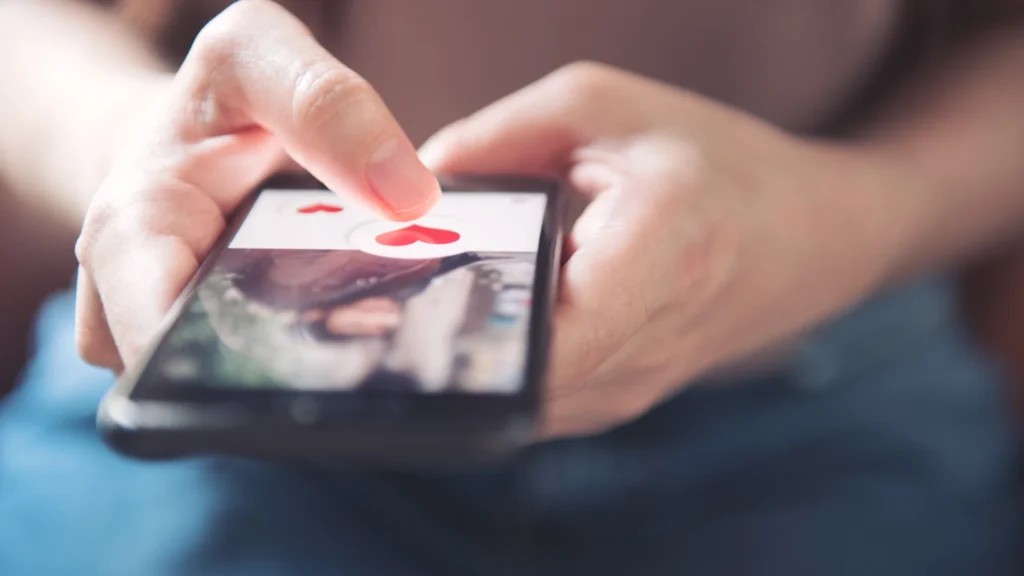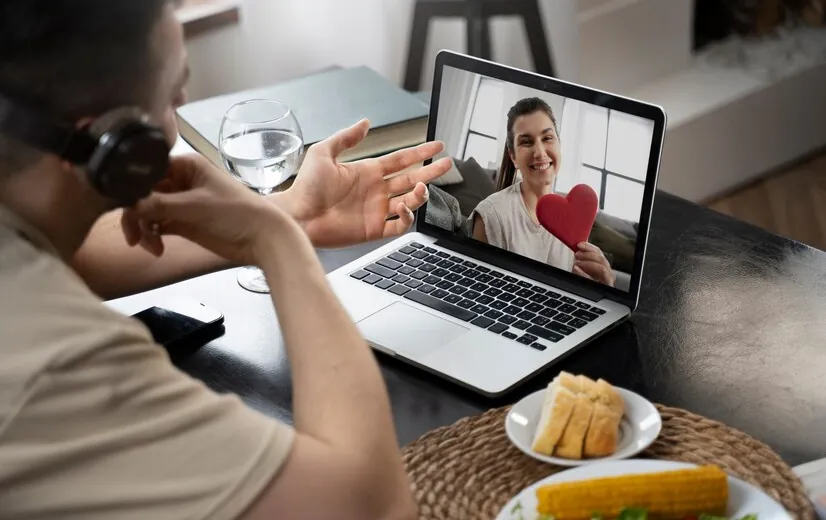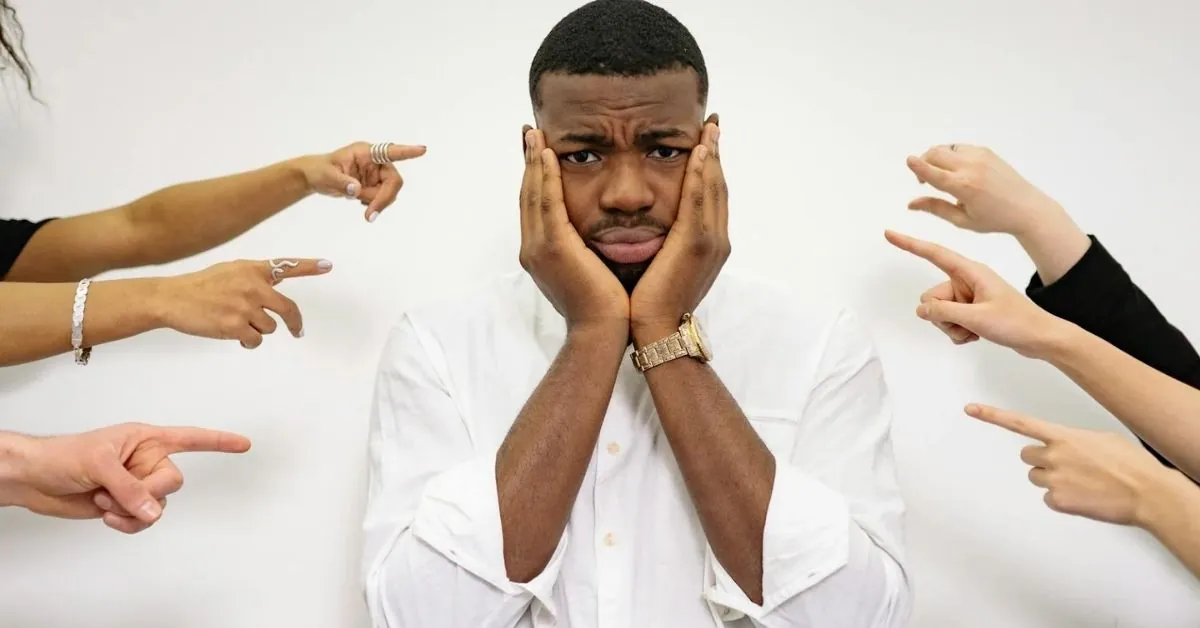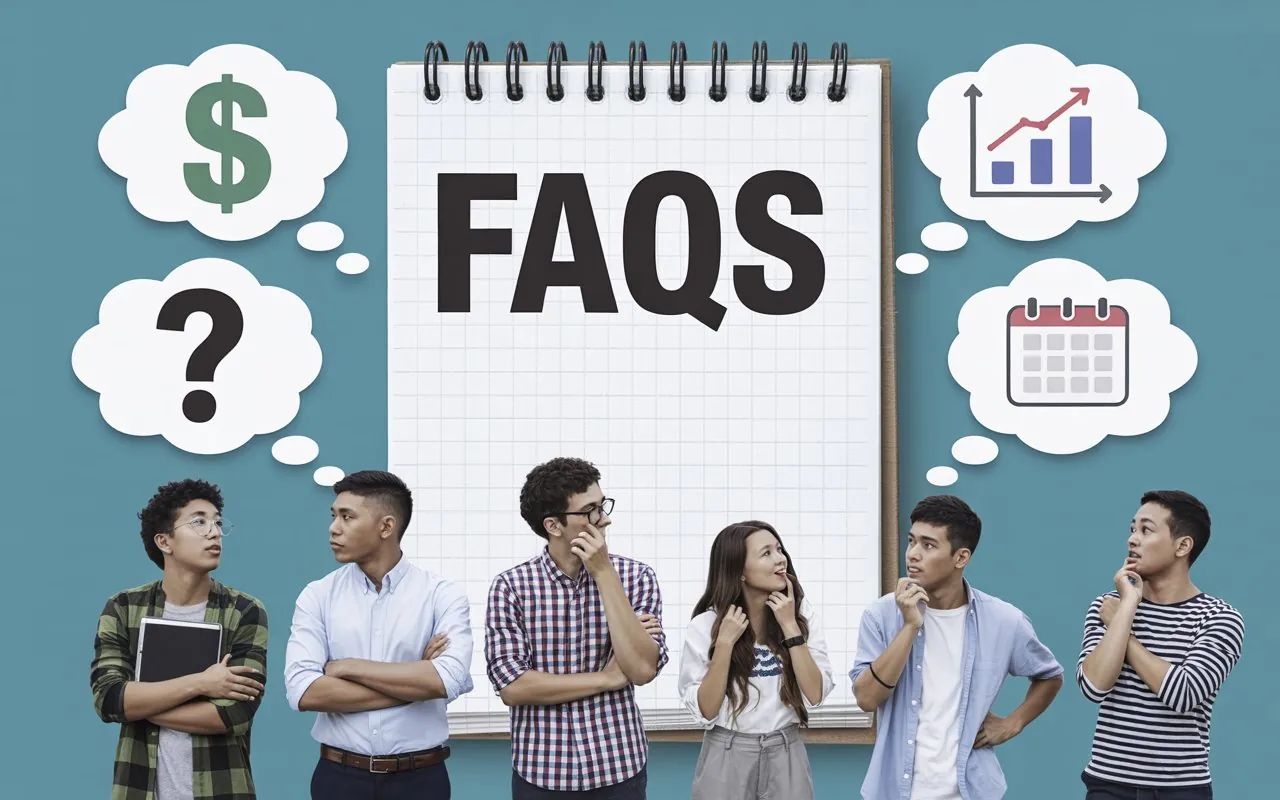Introduction
The impact of social media on Nigerian dating is a big topic in today’s fast-changing world. With millions of Nigerians now connecting online, social media has transformed how people meet, build relationships, manage heartbreak, and define what love means. While online connections can bring people together across states, religions, or tribes, they also carry risks and challenges. This guide explores every detail from real stories to tips so you can understand and navigate romance in Nigeria’s digital era. From the days of letter‑writing and phone calls, Nigerian dating has moved online. the impact of social media on Nigerian dating is undeniable as profiles, statuses, DMs, and viral trends shape how we find love. But is this influence positive, negative, or a bit of both? On one hand, platforms help people meet across distance and social barriers. On the other, they often bring insecurity, comparison, and miscommunication. In this article, we dig deep into everything social media brings good and bad to modern Nigerian love.
Why Social Media Matters in Nigerian Dating
The Impact of Social Media on Nigerian Dating: Why It’s Important

- In the past, people met at weddings, churches, schools, or workplaces.
- Today, many young Nigerians meet first on social media before in person.
- Social media helps people date across distance, religion, and class.
- It gives voice to shy people and helps those in remote places connect.
Whether you’re dating seriously or casually, social media affects:
- How you meet people
- How you talk daily
- What you post (or don’t post)
- How others view your relationship
1. How People Meet Has Changed
Before social media, dating was mostly local people met in churches, schools, offices, weddings, or through family introductions.
Now, things are different:
- You can meet someone from another state or country.
- Hashtags like #NaijaLove, #CoupleGoals, or #NigerianWeddings connect strangers.
- Dating apps like Badoo, Tinder, Bumble, and Facebook Dating make it easier to connect.
Impact:
- More dating options
- Easier access to love
- But also more competition and less focus

2. Communication Is Faster But Less Personal
With WhatsApp, DMs, voice notes, and video calls, it’s now easy to talk anytime. You don’t need to wait days to get a response like in the past.
However:
- People now expect fast replies, and delays can cause fights.
- Some partners prefer chatting to talking in real life.
- Emojis and short texts sometimes lead to misunderstanding.
Impact:
- Quick, easy bonding
- But also miscommunication and less emotional depth
3. Public Validation Becomes Pressure

Many Nigerians feel that a relationship is not “real” until it’s shown on social media.
You’ll hear things like:
- “If he loves me, why hasn’t he posted me?”
- “She’s hiding me maybe I’m not the only one.”
- “Why is he liking other girls’ pictures?”
Couples now feel pressure to:
- Post pictures
- Celebrate anniversaries online
- Compete with other couples’ lifestyles
Impact:
- Validation and pride
- But also insecurity, comparison, and emotional stress
4. Digital Infidelity Has Become Common
Online cheating is real. Some people:
- Chat secretly with others
- Flirt in comment sections
- Send inappropriate pictures or videos
- Keep exes close “just in case”
This form of betrayal is harder to catch but just as painful.
Impact:
- Broken trust
- Constant suspicion
- Fear of public disgrace
5. Relationship Goals Are Unrealistic
Social media often shows only the perfect side of love. Couples rent outfits, fake trips, or pretend to be happy just for likes.
As a result, people begin to:
- Compare their real love with fake love online
- Feel pressured to spend money for “photo-shoot” love
- Leave good partners because they don’t match “online standards”
Impact:
- Poor self-esteem
- Unnecessary breakups
- Unrealistic expectations
6. Breakups Now Go Public
In the past, breakups were private. Today:
- People delete all pictures and block each other
- Followers ask questions
- Some even fight online or share chats and voice notes
Breakups now come with:
- Embarrassment
- Online gossip
- Mental health struggles
Impact:
- Loss of dignity
- Trauma and shame
- Online trolling
7. Social Media Strengthens Long-Distance Love

For couples in different cities or countries, social media is a lifeline:
- Video calls make bonding easier
- Sharing pictures keeps love alive
- Watching each other’s stories creates closeness
Impact:
- Hope for long-distance relationships
- Regular connection despite miles
- Stronger commitment with effort
8. It Shapes How People Flirt and Propose
DMs are now used for:
- Starting conversations
- Sending gifts
- Making jokes or romantic confessions
Even wedding proposals happen on Instagram Live or TikTok now.
Impact:
- New dating methods
- Bold expressions of love
- More creativity in romance
9. It Gives a Voice to the Voiceless
Shy people, introverts, or those with physical disabilities may find it hard to date in real life. Social media gives them a platform.
Now, anyone can:
- Express their heart through writing, voice notes, or art
- Build confidence before physical meetings
- Create meaningful bonds without judgment
Impact:
- More inclusiveness
- Emotional confidence
- True connection beyond looks
10. It Encourages Personal Branding in Love
People now curate their personalities online. You are judged by:
- Your captions
- Your comments
- Your consistency
- The kind of people you follow
So, dating on social media means managing your online image.
Impact:
- More conscious self-presentation
- Performance pressure
- Fake personas for attention
Key Features: The Impact of Social Media on Nigerian Dating
- Easy access to new partners across distances
- Fast communication messaging, video calls, virtual dates
- More diverse dating pools: different cultures, regions, beliefs
- Tools for showing affection and status: posting photos, tagging, and “soft launches”
- Cultural influence: trends, viral challenges, “relationship goals”
- Exposure to both real and fake profiles
- Changing gender roles and dating expectations
- Unique pressures about privacy, public displays, and validation
- More open conversations about love and relationship issues
- Both opportunities and risks for mental health and safety
Social Media’s Role in Modern Nigerian Dating
Social media now guides how millions of Nigerians find, know, and keep romantic connections.
- Meeting People: No longer limited to churches, offices, or social gatherings now people meet on Facebook, WhatsApp, Twitter, Instagram, Tinder, and more.
- Expanding Networks: It’s now easier to connect with someone from another part of the country, different tribe, or background.
- Matching By Interest: People share on their profiles about hobbies, beliefs, politics, and preferences, making it easier to find like-minded partners.
- Speed and Convenience: Instant chatting, video calls, and quick updates make dating faster but sometimes more superficial.
- Blurring Lines: Work/life/romance all occur in the same apps, making boundaries harder to maintain.

Core Changes: How Social Media Has Changed Dating Norms
1. Dating Has Gone Public
Relationships are now often “on display,” as couples post photos, status updates, and even arguments for others to see.
- Validation Pressure: A posted couple photo or “in a relationship” status can mean “I’m serious,” while deleting posts may signal problems or breakups.
- Comparisons: Couples sometimes feel pressured to live up to online “relationship goals.”
2. Fast-Tracked Relationships
- Quicker connections: People connect and begin chatting instantly sometimes leading to faster relationships.
- Casual Hookups More Common: The “hook-up culture” is on the rise, especially among youth, with influences from global trends and Western media.
3. Changing Gender and Dating Roles
- Women Initiating: Women can now initiate messages or dates.
- Shifting Expectations: Social media circles challenge (and sometimes reinforce) traditional roles, leading to debates about money, gifts, and commitment styles.
Essential Skills for Digital Dating Success
- Digital Literacy: Spotting scams, fake profiles, and “catfish.”
- Communication: Writing clear messages and managing tone in texts or voice notes.
- Privacy Awareness: Knowing what to post or keep private.
- Emotional Intelligence: Understanding how online interactions differ from real life, managing jealousy, and reading between the lines.
Social Media Platforms Favored by Nigerians
| Platform | Usage (%) | Dating Functions |
|---|---|---|
| 72% | Meeting partners, groups, chat features | |
| 15% | Instant chat, status updates | |
| 2go | 8% | Chatrooms, group chats |
| Badoo | 5% | Dating-focused, meet-ups |
| N/A | DMs, sharing photos | |
| N/A | Trending topics, “mutuals” dating |
Data source: recent social media usage surveys in Nigeria
Influence on Communication Styles
- Always Online: Couples can chat anytime, anywhere eliminating the need for long waits between letters or calls.
- Doubts & Jealousy: “Last seen” timestamps, blue ticks, or ignored DMs can cause suspicion or fights.
- New Etiquette: How soon to reply? Is voice note better? What about video calls? Social media creates new “rules” for romance.
Influence on Expectations and Relationship Standards
- Unrealistic Standards: Pictures and updates may create pressure to display perfection gifts, vacation, outings that do not match reality.
- Influencer Culture: Popular couples and advice blogs increasingly set trends, but sometimes set unrealistic expectations about love or marriage roles.
- Public Opinion: Friends, family, and even strangers may judge, comment, or gossip about relationships seen online.
The Double-Edged Sword: Benefits and Risks
Benefits
- Wider Choices: Easier to find romance outside close-knit circles.
- Accessibility: Enables introverts or those in remote areas to meet new people.
- Learning and Advice: Relationships blogs and influencers offer dating advice, support, and education.
Risks
- Scams and Deception: Fake identity risks (“catfishing”), romance scams, and heartbreak.
- Social Pressure: Pressure to meet “relationship goals” or match up to peers’ public displays.
- Mental Health: Comparisons and negative feedback can increase anxiety or insecurity.
- Conflict: Fights over DMs, privacy breaches, or rumor-spreading.

Tips for Safe and Fulfilling Digital Dating
- Always verify a potential partner’s identity before meeting offline.
- Avoid sharing personal financial details or sensitive materials online.
- Agree with your partner about what can/can’t be shared online.
- Balance online chatting with face-to-face meetings for deeper connection.
- Take breaks from social media when feeling anxious or overwhelmed.
- Watch for red flags: rushed intimacy, requests for money, inconsistent behavior.
- Discuss boundaries for “public” and “private” moments with your partner.
Table: Social Media Effects on Nigerian Dating
| Aspect | Positive Effect | Challenge/Risk |
|---|---|---|
| Meeting Partners | Easier access, diverse options | Falling for scams or fake profiles |
| Communication | Faster, more convenient, creative | Misunderstandings via text, tone issues |
| Relationship Visibility | Social validation, sense of pride | Pressure to perform, privacy concerns |
| Advice and Learning | Access to tips, support communities | Misinformation from unqualified sources |
| Conflict Resolution | Can quickly clear misunderstandings | Public drama, screenshot “evidence” posts |
| Maintaining Long-Distance | Video calls, digital date nights | Easier to hide affairs, neglect partners |
Case Studies: True Stories from Nigeria
Case Study 1: Love Despite Distance
Rachael met Michael on Facebook while he was in Abuja and she was in Lagos. Frequent video calls and chatting on WhatsApp kept them close. After a year, Rachael moved to Abuja and they are now engaged.
Case Study 2: Betrayal Through a Fake Profile
Tola thought she had found “the one” on Instagram. After months of sweet chats, she discovered he was using someone else’s photos and running a scam. Tola learned to verify identities before trusting online connections.
Case Study 3: Pressure to Go Public
Funmi enjoyed her relationship but felt pressured when her boyfriend wanted to post photos “for validation.” When she refused, rumors started among friends. She learned to set boundaries and value her own comfort.
Case Study 4: Family Drama Over DMs
Kunle’s girlfriend found messages from his ex in his DMs. They argued publicly on social media, which caused both embarrassment and tension in their families. Both later agreed to handle issues privately.
Case Study 5: Learning from Relationship Blogs
Ifeoma turned to relationship advice groups on Facebook for guidance during dating struggles. The advice helped her make healthy decisions—but later she realized some tips didn’t match her values or reality.
Case Study 6: Hook-Up Culture and Mismatched Goals
Chijioke enjoyed flirting on dating apps, but noticed many were only interested in hook-ups. He decided to clarify his goals early in conversations to avoid confusion and heartbreak.
Case Study 7: Career Woman and Relationship Doubts
Amaka worried men were put off by her ambitious posts on LinkedIn and Instagram. Eventually, she met someone who respected her career. They use social media to support each other and share milestones.
Case Study 8: Friendships Turn Romantic
Seyi started as “Twitter mutuals” with Tayo. They became friends, then partners proving online communities can turn into real love when handled with care.
Pros and Cons of Social Media in Nigerian Dating
| Pros | Cons |
|---|---|
| Widens access to potential partners | Risk of scams and fake identities |
| Convenient, instant communication | Misunderstandings from lack of context |
| Opportunity to learn relationship skills | Misinformation from unqualified sources |
| Enables long-distance relationships | Makes secrecy and affairs easier |
| Allows individual expression | Heightens pressure for public validation |
| Greater openness about dating issues | May expose private issues to public scrutiny |
Frequently Asked Questions (FAQs)

1. How has social media changed Nigerian dating?
It has expanded choices, made communication faster, increased diversity of partners, and introduced both new risks and new pressures.
2. What are the most popular social media platforms for dating in Nigeria?
Facebook, WhatsApp, 2go, Badoo, Instagram, and Twitter are widely used.
3. Are online relationships serious or just for fun?
Both types exist. Some people want casual connections, while others are looking for marriage or life partners.
4. Is it risky to meet someone from social media in real life?
It can be risky verify identity, meet in public, and let friends know your whereabouts whenever meeting someone new.
5. Can social media lead to lasting love in Nigeria?
Yes. Many couples have met and formed strong relationships online, though caution is needed due to deception risks.
6. How can I keep my relationship private online?
Set boundaries with your partner about what to share and review your privacy settings regularly.
7. What if my partner never posts about us online?
Talk openly about both of your expectations. For some, privacy is important; for others, public validation means a lot.
8. Do people really find true love on apps or DMs?
Yes, but success often requires honesty, patience, and careful selection.
9. What should I do if I experience cyberbullying or harassment?
Block and report offenders, and seek support from trusted people or authorities if necessary.
10. Can online dating help with long-distance relationships?
Yes video calls, chats, and shared online experiences keep love alive across distances.
Conclusion
The impact of social media on Nigerian dating is complex, blending opportunity with challenge. For many, it offers a way to find love, companionship, and support far beyond traditional boundaries. The ability to connect, share, and learn from others is unmatched in Nigeria’s history. Still, it brings risks scams, fake personas, misunderstandings, and the stress of living up to other people’s expectations. The key is balance: using technology wisely, setting boundaries, and remembering that real relationships thrive on trust, honesty, and respect both online and offline. Whether for friendship, romance, or marriage, social media is now a powerful part of the Nigerian love story.